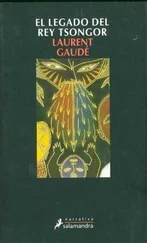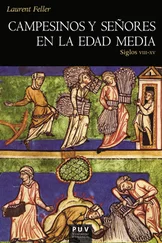Laurent Binet - HHhH
Здесь есть возможность читать онлайн «Laurent Binet - HHhH» весь текст электронной книги совершенно бесплатно (целиком полную версию без сокращений). В некоторых случаях можно слушать аудио, скачать через торрент в формате fb2 и присутствует краткое содержание. Город: New York, Год выпуска: 2012, ISBN: 2012, Издательство: Farrar, Straus and Giroux, Жанр: Историческая проза, на английском языке. Описание произведения, (предисловие) а так же отзывы посетителей доступны на портале библиотеки ЛибКат.
- Название:HHhH
- Автор:
- Издательство:Farrar, Straus and Giroux
- Жанр:
- Год:2012
- Город:New York
- ISBN:978-0-374-16991-6
- Рейтинг книги:3 / 5. Голосов: 1
-
Избранное:Добавить в избранное
- Отзывы:
-
Ваша оценка:
- 60
- 1
- 2
- 3
- 4
- 5
HHhH: краткое содержание, описание и аннотация
Предлагаем к чтению аннотацию, описание, краткое содержание или предисловие (зависит от того, что написал сам автор книги «HHhH»). Если вы не нашли необходимую информацию о книге — напишите в комментариях, мы постараемся отыскать её.
HHhH — читать онлайн бесплатно полную книгу (весь текст) целиком
Ниже представлен текст книги, разбитый по страницам. Система сохранения места последней прочитанной страницы, позволяет с удобством читать онлайн бесплатно книгу «HHhH», без необходимости каждый раз заново искать на чём Вы остановились. Поставьте закладку, и сможете в любой момент перейти на страницу, на которой закончили чтение.
Интервал:
Закладка:
74
In 1946, at Nuremberg, the representative for Czechoslovakia will ask Keitel, the German chief of staff: “Would the Reich have attacked Czechoslovakia in 1938 if the Western powers had supported Prague?” To which Keitel will reply: “Definitely not. Militarily, we weren’t strong enough.”
Hitler can curse all he likes. The truth is that France and Britain opened a door to which he did not have the key. And, obviously, by displaying such servility, encouraged him to start again.
75
This is where it all began, exactly fifteen years before, at the Bürgerbräukeller in Munich. But tonight, for once, the three thousand people gathered here have not come to celebrate the past. The speakers have taken their turn onstage and all of them have screamed for vengeance. The day before yesterday, in Paris, a seventeen-year-old Jew killed a German ambassadorial secretary because the Germans had deported his father. This is no great loss, as Heydrich is well placed to know: as a staunch anti-Nazi, the ambassadorial secretary was under Gestapo surveillance. But there is an opportunity here and it must be seized. Goebbels has entrusted him with a great mission. While the evening is in full swing, Heydrich gives his orders: there will be spontaneous demonstrations during the night. All police stations must immediately contact the commanding officers of the Party and the SS. The demonstrations will not be suppressed by the police. All the police need do is ensure that there is no danger to German lives or goods (for example, synagogues will be set on fire only if there is no risk to the neighboring buildings). Jewish shops and private apartments may be destroyed, but not pillaged. The police must arrest as many Jews, especially rich ones, as the prisons can hold. As soon as they are under arrest, officers are advised to make immediate contact with the appropriate concentration camps so that they can be sent away at the earliest possible moment. This order is transmitted at 1:20 a.m.
The SA is already on its way, with the SS following. In the streets of Berlin, and all the other cities of Germany, the windows of Jewish shops are turned to flying shards of glass. Furniture is thrown from the windows of Jewish apartments, and the Jews themselves are arrested, beaten up, or even shot. Typewriters, sewing machines, even pianos, are seen smashed to pieces on the ground. The honest folk stay in their houses; the more curious go out to watch, careful not to get involved, like silent ghosts. Not that we can ever know the true nature of their silence: complicit? Disapproving? Incredulous? Satisfied? Somewhere in Germany, an eighty-one-year-old lady hears a banging at the door. When she opens to the SA, she sniggers: “Oh, what important visitors I have this morning!” But when the SA tell her to get dressed and follow them, she sits on the sofa and declares: “I won’t get dressed and I won’t go anywhere. Do with me what you will.” And when she repeats, “Do with me what you will,” the squad leader draws his pistol and shoots her in the chest. She collapses on the sofa. He puts a second bullet in her head. She falls off the sofa and rolls over on the carpet. But she is not yet dead. Her head turned toward the window, she emits a quiet groan. So he shoots her again—in the middle of her forehead this time, from four inches away.
Elsewhere, an SA guard climbs onto the roof of a sacked synagogue, brandishing scrolls of the Torah and yelling: “Burn yourselves with these, Jews!” And he throws them like carnival streamers. Already, we see the inimitable Nazi style.
In a report written by the mayor of a small town, we read: “The acts against the Jews occurred promptly and without any particular tension. Following the measures taken against them, a Jewish couple threw themselves in the Danube.”
All the synagogues are burning, but Heydrich, ever the professional, has ordered that any official records to be found in them must be sent to SD headquarters. Boxes of documents arrive at Wilhelmstrasse. The Nazis love burning books, but not files. German efficiency? Who knows if the SA didn’t wipe their asses with some of those precious archives…
The next day, Heydrich sends the first confidential report to Göring: the scale of destruction is not yet measurable in terms of numbers. According to the report, 815 shops have been destroyed, 171 houses burned or destroyed, but this is only a fraction of the actual damage. One hundred and nineteen synagogues have been set on fire, another 76 completely destroyed. Twenty thousand Jews have been arrested. The number of deaths is reported as 36. The number of serious injuries is also 36. All the dead and injured are Jewish.
Heydrich has also been informed about all rapes: in these cases, the Nuremberg racial laws apply. Anyone guilty of having sex with a Jew will be arrested, kicked out of the Party, and handed over to the courts. Those who have committed murder, on the other hand, have nothing to worry about.
Two days later, Göring chairs a meeting at the Air Ministry to find a way of making the Jews bear the costs of all the damage. As the spokesman for the insurance companies points out, the price of broken windows alone comes to five million marks (this is why it’s called “Crystal Night”). It turns out that many of the Jewish boutiques are owned by Aryans, which means they must be compensated. Göring is furious. Nobody had thought about the economic implications, least of all the finance minister. He shouts at Heydrich that it would have been better to kill two hundred Jews than to destroy so much valuable property. Heydrich is upset. He replies that they did kill thirty-six Jews.
As solutions are found to make the Jews themselves pay for the damages, Göring calms down and the atmosphere lightens. Heydrich listens as Göring jokes with Goebbels about the creation of Jewish reservations in the forest. According to Goebbels, they ought to introduce certain Jewish-looking animals—like the moose, with its hooked nose. Everyone present laughs heartily, except for the representative of the insurance companies, who’s unconvinced by the field marshal’s finance plan. And Heydrich.
At the end of the meeting, when it has been decided to confiscate all Jews’ goods and to forbid them from having businesses, Heydrich decides it would be useful to refocus the debate:
“Even if the Jews are eliminated from economic life, the main problem remains. We must kick the Jews out of Germany. In the meantime,” he suggests, “we should make them wear some kind of sign so they can be easily recognized.”
“A uniform!” shouts Göring, always fond of anything to do with clothing.
“I was thinking of a badge, actually,” Heydrich replies.
76
The meeting, however, doesn’t end on this prophetic note. Henceforth, the Jews are excluded from public schools and hospitals, from beaches and swimming pools. They must do their shopping during restricted hours. On the other hand, following objections from Goebbels, it is decided not to make them use a separate carriage or compartment on public transport: What would happen during rush hour? The Germans might be packed like sardines in one carriage while the Jews had another carriage all to themselves! And so on—you get the idea. Let’s just say that the debate scales new heights of technical precision.
Heydrich suggests yet more restrictions on the Jews’ movements. Then Göring—completely recovered from his brief loss of temper—raises, out of the blue, a fundamental question. “But, my dear Heydrich, you will have to create ghettos in all our cities, on an enormous scale. It’s unavoidable.”
Heydrich replies brusquely:
“As far as ghettos are concerned, I would like to define my position straightaway. From a policing point of view, I believe it’s impossible to establish a ghetto in the sense of a completely isolated district where only Jews may live. We cannot control a ghetto where a Jew can melt into the rest of the Jewish population. That would provide shelter for criminals, and also a breeding ground for diseases. We don’t want to let the Jews live in the same buildings as Germans, but at the moment—whether in whole districts or in individual buildings—it is the Germans who force the Jews to behave correctly. Surely it would be better to keep them under the watchful eyes of the whole population than to cram them in their thousands into areas where I cannot adequately control their daily lives with uniformed agents.”
Читать дальшеИнтервал:
Закладка:
Похожие книги на «HHhH»
Представляем Вашему вниманию похожие книги на «HHhH» списком для выбора. Мы отобрали схожую по названию и смыслу литературу в надежде предоставить читателям больше вариантов отыскать новые, интересные, ещё непрочитанные произведения.
Обсуждение, отзывы о книге «HHhH» и просто собственные мнения читателей. Оставьте ваши комментарии, напишите, что Вы думаете о произведении, его смысле или главных героях. Укажите что конкретно понравилось, а что нет, и почему Вы так считаете.












